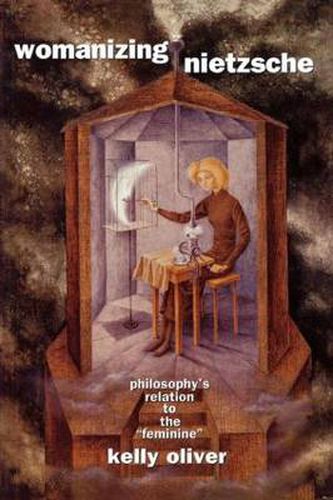Readings Newsletter
Become a Readings Member to make your shopping experience even easier.
Sign in or sign up for free!
You’re not far away from qualifying for FREE standard shipping within Australia
You’ve qualified for FREE standard shipping within Australia
The cart is loading…






In Womanizing Nietzsche , Kelly Oliver addresses questions of the death of philosophy and the possibility of ethics. Offering the first sustained critique of the identification of Nietzsche with the position of woman, she builds on Luce Irigaray’s work in the relation of philosophy to the feminine. Oliver focuses on the relationship between philosophy and its other, stressing its ethical implications. Rather than concluding with the end of metaphysics and philosophy, Womanizing Nietzsche opens up a discussion of philosophy conceived otherwise. Oliver offers new readings of the figure of woman in Nietzsche’s writings. She also engages a dialogue between Derrida’s Spurs and Irigaray’s Marine Lover , using their work on Nietzsche to engage the larger question of the ethical relation to an other. Oliver follows Irigaray in suggesting an ethics of maternity that goes beyond the death toll of philosophy and the toll extracted from woman/feminine/maternity by philosophy.
$9.00 standard shipping within Australia
FREE standard shipping within Australia for orders over $100.00
Express & International shipping calculated at checkout
In Womanizing Nietzsche , Kelly Oliver addresses questions of the death of philosophy and the possibility of ethics. Offering the first sustained critique of the identification of Nietzsche with the position of woman, she builds on Luce Irigaray’s work in the relation of philosophy to the feminine. Oliver focuses on the relationship between philosophy and its other, stressing its ethical implications. Rather than concluding with the end of metaphysics and philosophy, Womanizing Nietzsche opens up a discussion of philosophy conceived otherwise. Oliver offers new readings of the figure of woman in Nietzsche’s writings. She also engages a dialogue between Derrida’s Spurs and Irigaray’s Marine Lover , using their work on Nietzsche to engage the larger question of the ethical relation to an other. Oliver follows Irigaray in suggesting an ethics of maternity that goes beyond the death toll of philosophy and the toll extracted from woman/feminine/maternity by philosophy.